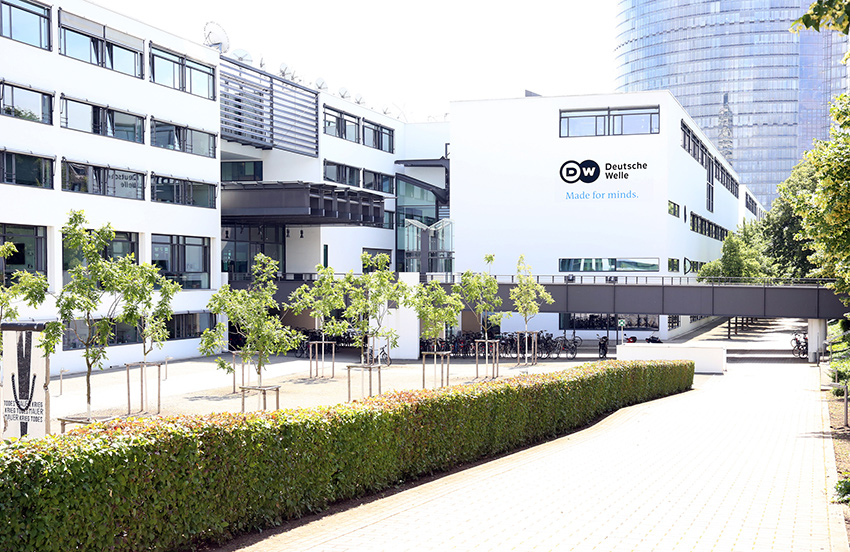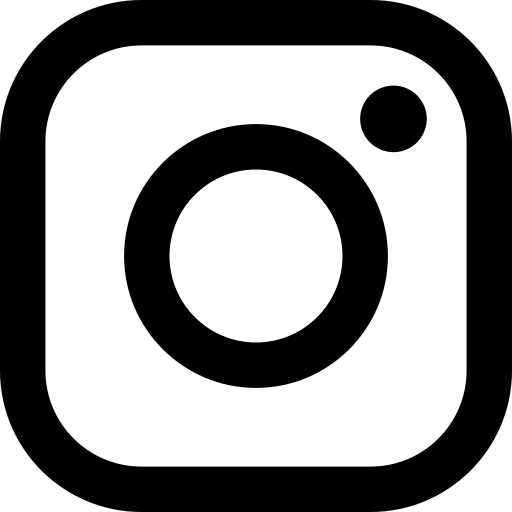News
13.02.2020
Sustainability at Deutsche Welle
by Eyes & Ears of Europe

Media production and sustainability – just how does that go together? Nobody can ignore the issue of sustainability. Whether it's about living sustainably, providing information about it, or simply producing less plastic waste – media companies and agencies large and small are taking action to protect our planet. Sustainability, from the light bulb in the office, to waste separation, to educational programmes and sustainable advertising space. In the coming months we are going to ask exactly what our members have to say about this topic.
"Deutsche Welle (DW) is Germany's international information provider. It distributes journalistic content worldwide – regionalised, interactive, multimedia and in 30 languages." This is how the public broadcaster presents itself on its own website. International, worldwide – doesn't that always include a lot of plane rides? How can a station like this be sustainable? Also, how can a magazine about cars go green? Well, Eyes & Ears asked!

REV – the car and mobility magazine focusing on the planet
The debate on sustainability repeatedly focuses on the topic of cars and mobility. REV, the new DW magazine, follows this lead. Since this is the successor to a very conventional car magazine, "we approach the topic of sustainability carefully when selecting topics," says Niels Eixler, the programme's chief editor. "We continue to show great and big cars, but we also mention that although they may be a joy to look at, they are complete ecological failures". Every single article deals with the topic of sustainability, but "as elegantly – i.e. discreetly – as possible and always without pointing fingers", emphasises Eixler. One example is the comparison of a high-priced – and disgraced by the debate – combustion SUV, which competes against an electric vehicle of the same class in the magazine.
In addition to sustainable topics, DW also pays attention to green production of this and other programmes: In-house synergies ensure for example that unavoidable flights – which are additionally compensated via platforms such as "atmosfair" – can be used for several productions. REV's editorial team also ensures that CO2-certified production companies are preferred for cooperation and that business trips are made as CO2-neutral as possible (within Germany exclusively by train). In addition, the REV editorship continues their commitment outside of their own broadcast: Thus, they promote electro-operated production vehicles within the DW.
Sustainability as a corporate goal
All or nothing – this is what the next step of DW sounds like. Instead of just talking about it, sustainability became a declared corporate goal: "DW acts in a sustainable manner. It uses its means and resources efficiently, continuously reduces its ecological footprint and is committed to social issues". To achieve this, the station has launched a new programme starting in 2020. Under the rule "Flieg die Hälfte (Fly half) – FDH", the aim is to make mobility more climate-friendly through the following principles: 1. avoid (don't fly), 2. reduce (travel by train), 3. compensate (equalise remaining emissions).
The FDH rule is already bearing first results since a climate budget was provided from the saved sum that DW would have paid in CO2 compensation for the annual flight volume. "We plan to use the money for concrete projects that will help us reduce our CO2 footprint," promises Manfred Adrian, head of the new sustainability management department. For this purpose, a medium-term climate strategy for DW will be developed where existing initiatives and projects as well as other data that are relevant to the sustainability goal will be recorded comprehensively and systematically in the future. In addition, employees will also be involved and shown opportunities for participation, says Adrian.
DW, as the first ARD broadcaster to do so, has also developed a sustainability report – certified according to the quality standards of the German Sustainability Code (DNK) – which is updated every two years. In this way, the progress made and improvements still to be aimed for are to be documented.

Manfred Adrian, who contributes his many years of experience as head of the Central Purchasing and Logistics Department, strengthened by Thilo Pommerening (l.), who has been working with companies for many years on the development and implementation of sustainability and climate protection strategies and is now strengthening DW on this topic, and Verena Luckscheiter, consultant to the Administrative Director.
Sustainability also extends to the website
Another part of DW's sustainable development is the ROAD project, the new responsive website. In this project, the website for DW's journalistic services is being developed from scratch. Similar to the mobile service m.dw.com, "lazyloading" (loading of data and resources only on demand) will be implemented in the new web app. DW also places great emphasis on the extensive use of reusable software components. Through thorough review and QA processes it is guaranteed that the developers can continue to develop the created code base efficiently, economically and sustainably (keyword: "clean code"). The aim is to ensure that the website requires little data consumption despite high performance, so that it can be used to its full potential even with limited internet access

Awareness also among the audience
In order to draw the attention of the audience to the topic, DW has numerous formats dedicated to the environment. For example, the multimedia magazine Global Ideas and Eco Africa - The Environmental Magazine, as well as the Doing Your Bit section, in which hundreds of projects have already been presented. Recently, the Eco family expanded: Eco India is another partner in the broadcasting area. On the Green Fence, a five-part series as an audio podcast, is another example. Environmental topics are naturally part of the science magazine Projekt Zukunft as well, which DW produces in numerous languages. All of these aim at reversing the loss of biodiversity and reducing the effects of climate change. Stories, which come from thinkers and doers from all over the world, who are committed to protecting our environment.
Further information on the topic is available at www.dw.com.
Current Jobs
- Praktikant/in Marketing und Social Media (w/m/d) - ARD Programmdirektion, München
- Praktikant/In Talent and Music (m/w/d) Pflichtpraktikum - Paramount.+, Berlin
- Technical Coordinator (m/w/d) im Design- und VFX-Bereich - Hessischer Rundfunk, Frankfurt am Main
- Art Director Newstime (m/w/d) - Seven.One Entertainment Group GmbH, München
- Project Manager Creative (f/m/d) as a leave cover - Paramount. Berlin or remote







